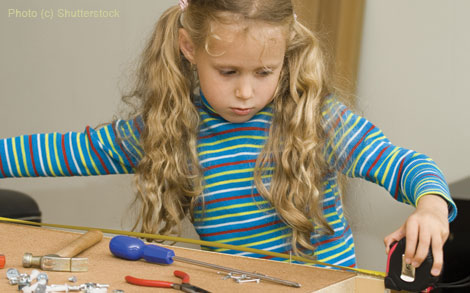|

How Do They Know That?
(and why do we need to know?)
By Wendy Priesnitz
Ever since my daughters began to learn without school in the 1970s, I have wondered about something. Why so many people need to know how they learn? Reporters, researchers, relatives, colleagues, other parents, and the merely nosey have all, over the years, expressed curiosity about how my children learned to read, write, and multiply…if they weren’t taught. (Interestingly enough, I’ve never once been asked how they learned to talk or walk.)
I suppose these queries are somewhat rhetorical and based in disbelief, posed by those who have never before considered the idea that learning isn’t often a direct result of teaching, or that there are other ways/places besides school to get whatever they define as an education. I used to shrug and say that I didn’t know, that maybe it happened by osmosis…then change the subject. If I embarked on a longer explanation, people’s eyes either glazed over or began rolling.
The curiosity, however, goes much beyond that. There is a whole industry of educational research devoted to understanding how people learn. Most of it is aimed at finding better ways to teach things in schools – things that could be learned anyway without the teaching and better, in some cases, without what amounts to interference masquerading as helping. In addition, there is money to be made in finding better ways to artificially motivate children to be receptive to that teaching and then to test the results....
The elephant in the room is that much of what is supposedly learned in school isn’t really learned at all. It is mostly material that has been memorized, whether it be history dates, mathematical formulae, or the difference between a verb and a noun. Absent any interest in learning the material and any context for it, as well as sufficient time to experiment with, adapt, and apply the information, I do not think that we can call this process learning. Rather, it is memorizing, regurgitating, and forgetting. (Why else would teachers and some parents bemoan the “ground lost” during summer vacation?!)
One clue about how real learning happens comes from examining the sort of needs-based information that is acquired continuously throughout one’s life through example, observation, reading, experience, trial and error, and practice. Some of that learning will involve “life skills” such as walking and talking, building a fence, growing a garden, and caring for a loved one. Some of it will involve those moments of insight that help us continue to fine tune ourselves as compassionate, emotionally well balanced human beings. And that's the way our life learning kids learn.
However, when most people talk about getting an education or becoming educated – in school or otherwise – they are referring to a certain, externally ordained set of facts called “academics” – reading, writing, chemistry, and history – as opposed to the set that involves gardening, plumbing, bicycle repair, or playing the harp (although it is possible to take a course and get a certificate in many of those fields). In fact, those skills are scorned in academic circles, considered frills at best and, at worst, a place to relegate kids who can’t or won’t do (the more important) academics. Nor are they, unfortunately, seen for what they really are: an efficient and effective way to learn academics.
Compartmentalizing and differentiating among various types of knowledge, and when and how they are learned, is encouraged by those who commodify education. The types of information that are deemed important enough to be taught in schools (or obtained by other educative means) are measured and tested; others aren’t. So it’s not surprising that what is considered non-academic learning isn’t often studied by the educational research industry, and seldom thought about by the rest of us.
At any rate, all the categories of learning will, according to most parents and educator alike, move along more efficiently if adults (particularly ones who have supposedly been taught about how learning happens) help children, rather than leaving them to their own devices. Presumably, that’s because we think learning is a difficult, complicated, and mysterious process.
Those who wonder about how life learning kids learn have a hard time accepting that learning can happen in the presence of need, when the learner is ready, and without much outside intervention. And I think that is because a lack of trust in the basic human motivation to learn has been reinforced by our own school experiences.
Wendy Priesnitz is Life Learning Magazine's founding editor. A writer and journalist for forty years, she is the author of 13 books, a former broadcaster, and a lifelong changemaker. She and her husband trusted their two now-adult daughters to learn without school in the 1970s and '80s. You can learn more about her and read more of her writing on her website.
Copyright © Life Media
Privacy Policy
  
  

|

